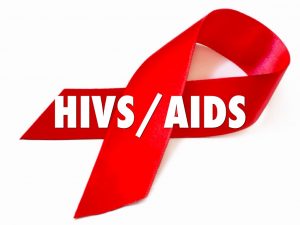
Little girl and the doctor for a checkup examined with a stethoscope closeup; Shutterstock ID 172766651; PO: child-doctor-heart-stethoscope-today-stock-tease-151207; Client: TODAY Digital
Hypocalcemia is a disease caused by calcium deficiency. One of most vital minerals needed by the body is calcium. The body needs calcium for building strong teeth and bones, besides better functioning to the heat and other muscles. If calcium supply in the body is less, then disorders like Hypocalcemia, Osteopenia and Osteoporosis can develop. Due to calcium deficiency, children many not grow to their full potential height as adults. Calcium can be obtained from food, supplements or vitamins.
As people age, calcium deficiency becomes an increased risk. If calcium intake is poor during childhood and over long time periods, hormonal changes in women, medications that reduce absorption of calcium are taken or due to particular genetic factors, it could lead to Hypocalcemia. People of all ages must ensure proper calcium intake. For both males and females, the daily calcium allowance recommended is the same. As compared to men, women need more calcium intake earlier in life. As a woman approaches menopause, requirement of calcium is more important to help reduce risk of calcium deficiency disease and osteoporosis. Malabsorption and malnutrition are other causes of Hypocalcemia.
When Vitamin level is low, it gets harder for the body to absorb calcium medications like corticosteroids, phenytoin, rifampin, phenobarbital and drugs necessary for treating elevated levels of calcium. Effects on the body are serious if calcium level is low over a longer term.
Symptoms of Hypocalcemia as the disease progresses include brittle and weak nails, depression, memory loss, confusion, hallucinations, muscle spasms, tingling and numbness in the face, feet and hands, thin and fragile skin, slow growth of hair, and easy fracturing of bones. In healthy people, the disease could bring on seizures also.
Diagnosis of Hypocalcemia is done by the doctor by checking out family history for osteoporosis and calcium deficiency, taking blood samples to check blood calcium level. In adults the normal calcium level ranges from 8.8 to 10.4 milligrams per deciliter.
Neonatal Hypocalcemia occurs in infants within the first 2 – 3 days after birth. This is caused by intake of formula or cow’s milk containing too much of phosphate. Symptoms of neonatal Hypocalcemia include slowed breathing or apnea, seizures, poor feeding, jitteriness or faster than normal heart beats. Diagnosis is done by blood tests and testing glucose levels. Oral calcium supplements and intravenous calcium gluconate form part of the treatment.
Hypocalcemia treatment includes adding more calcium in the diet, taking recommended dose of calcium supplements in chewable, tablet and liquid forms. In certain cases, calcium injections have to be taken regularly to regulate calcium levels. In the first few weeks of treatment, results are expected, however in severe cases the Hypocalcemia is monitored at an interval of one to three months. If treatment is not administered on time, the disease could prove fatal.
Hypocalcemia can be prevented by ensuring calcium intake in diet daily and taking multivitamins and supplements as recommended by the doctor. Regular exposure to sun rays can help boost levels of vitamin D. Besides this restricting alcohol and tobacco intake, exercising regularly and maintaining proper body weight is essential in maintaining healthy vitamin D and calcium levels in the body.








